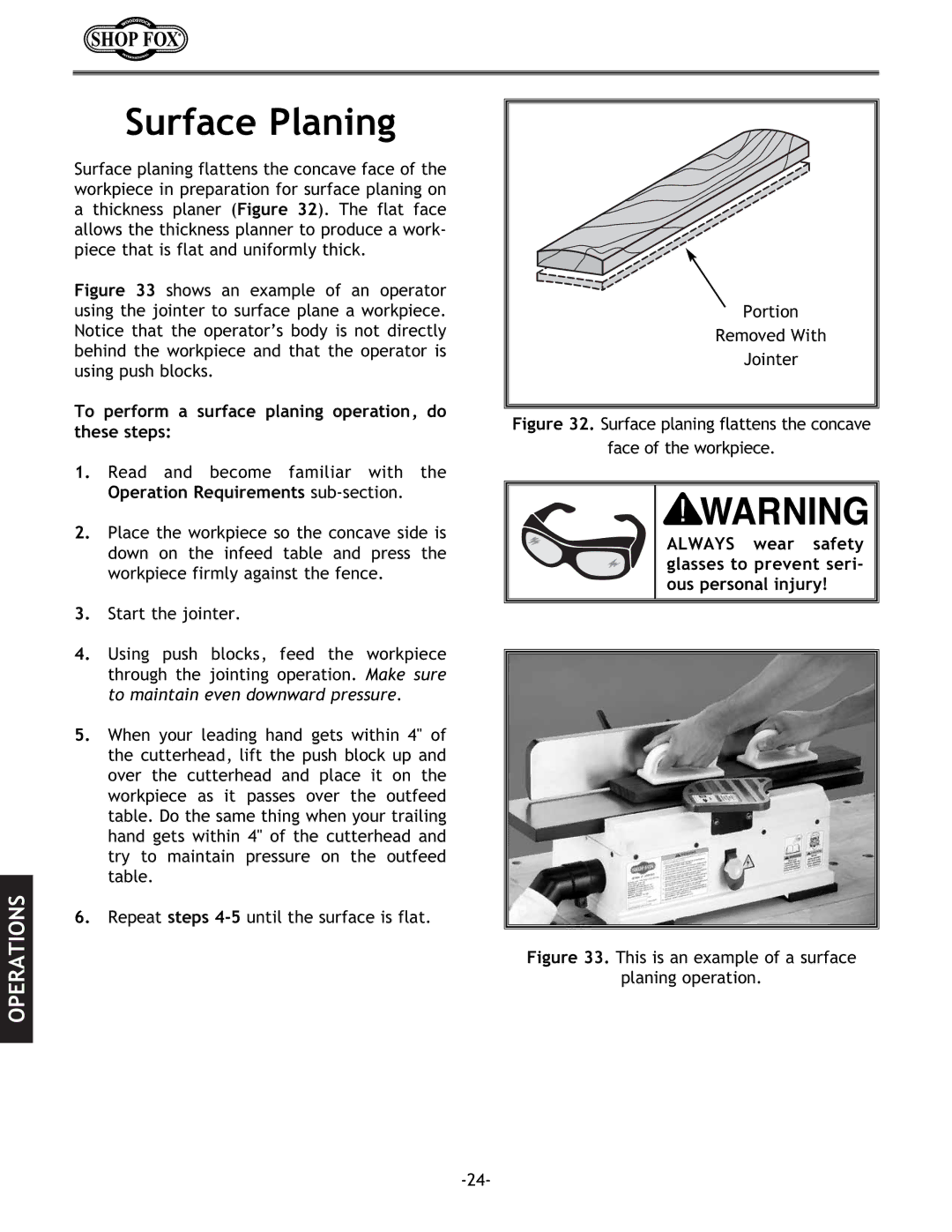
OPERATIONS
Surface Planing
Surface planing flattens the concave face of the workpiece in preparation for surface planing on a thickness planer (Figure 32). The flat face allows the thickness planner to produce a work- piece that is flat and uniformly thick.
Figure 33 shows an example of an operator using the jointer to surface plane a workpiece. Notice that the operator’s body is not directly behind the workpiece and that the operator is using push blocks.
To perform a surface planing operation, do these steps:
1.Read and become familiar with the Operation Requirements
2.Place the workpiece so the concave side is down on the infeed table and press the workpiece firmly against the fence.
3.Start the jointer.
4.Using push blocks, feed the workpiece through the jointing operation. Make sure to maintain even downward pressure.
5.When your leading hand gets within 4" of the cutterhead, lift the push block up and over the cutterhead and place it on the workpiece as it passes over the outfeed table. Do the same thing when your trailing hand gets within 4" of the cutterhead and try to maintain pressure on the outfeed table.
6.Repeat steps
Portion
Removed With
Jointer
Figure 32. Surface planing flattens the concave
face of the workpiece.
ALWAYS wear safety glasses to prevent seri- ous personal injury!
